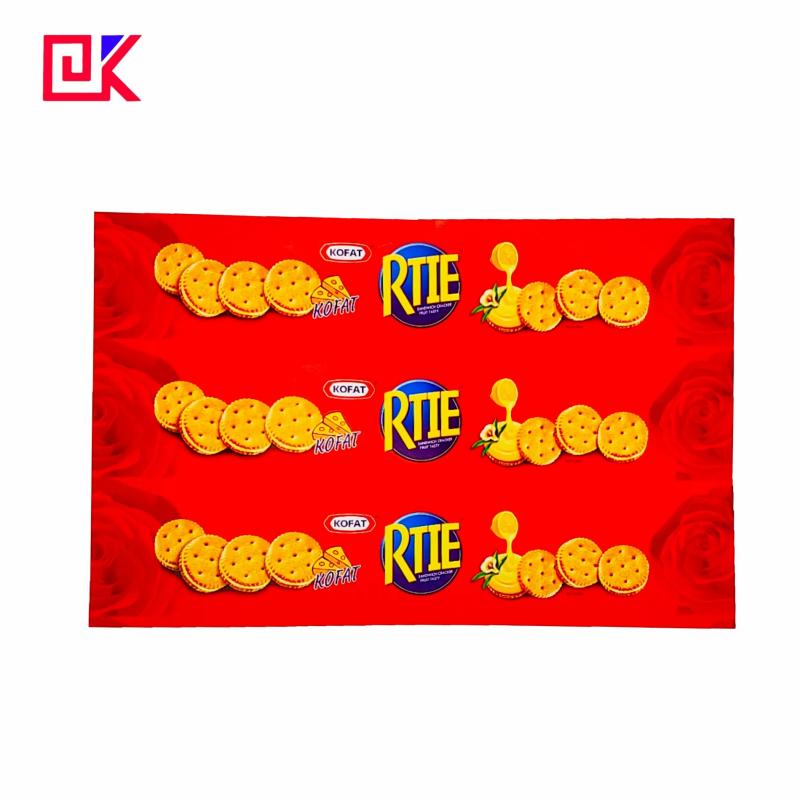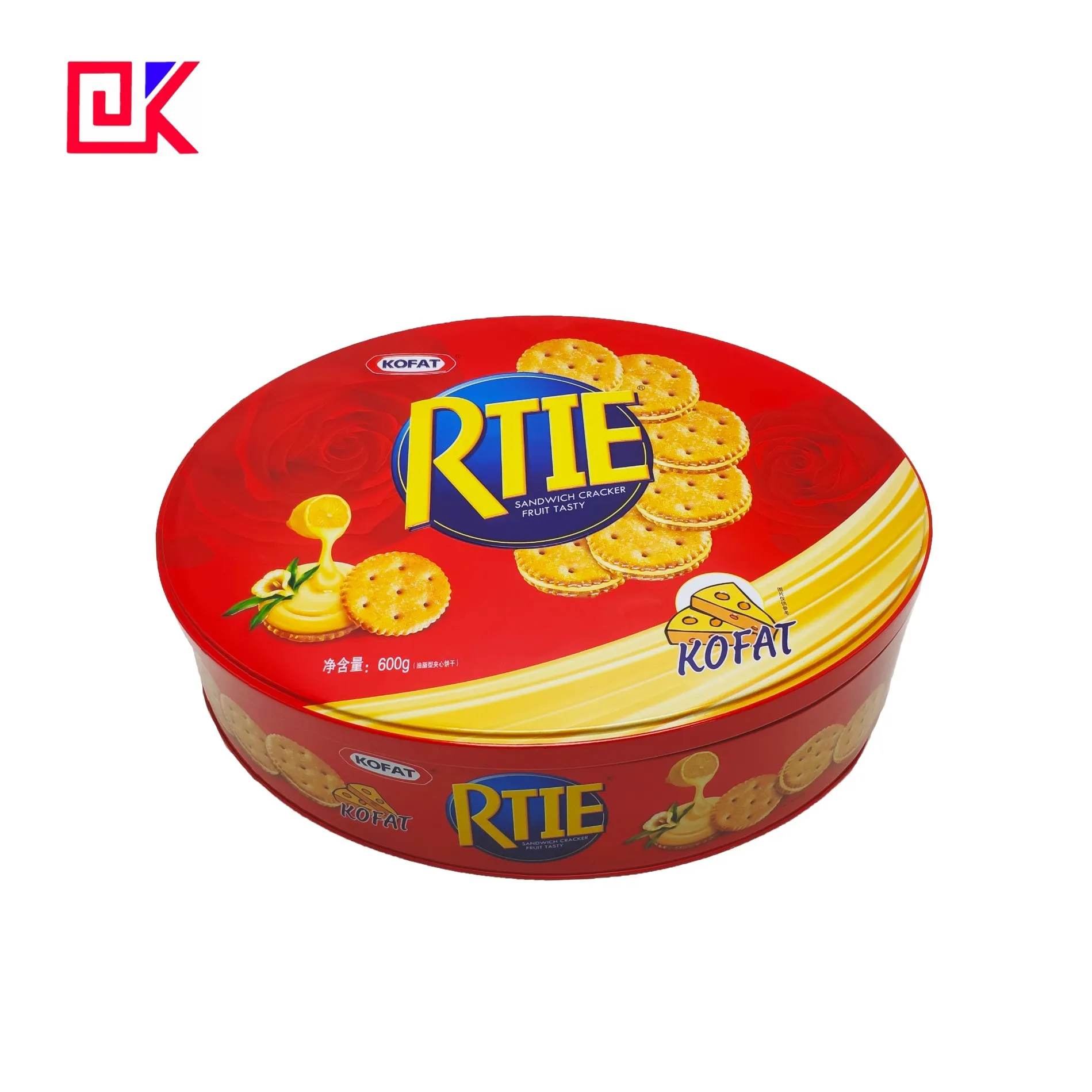In the field of food packaging, the choice of packaging materials is not only related to the safety and storage period of the product, but also directly affects the taste and smell of the food. As a common packaging material, tinplate packaging cans are widely used in food packaging, especially high-end food, canned food, condiments, etc. The advantages of tinplate packaging cans are self-evident. It has good sealing properties and can effectively prevent external pollution and protect the quality of food.
However, many people still have doubts about whether the coating of tinplate packaging cans will affect the taste and smell of food. This news will explore this issue in detail, from the composition and function of the coating to its actual impact on food, to provide consumers and manufacturers with a comprehensive analysis.

The coating composition of tinplate packaging cans
What is the coating of tinplate packaging cans?
Tinplate refers to a metal material coated with a layer of tin on the surface of steel. The main function of this layer of tin is to prevent oxidation of iron and corrosion. However, in order to further enhance the performance of the packaging and prevent direct contact between the tin layer and the food, many tinplate packaging cans will also be coated with a protective coating on the tin layer. These coatings can be organic coatings or epoxy resins, which can not only further prevent the reaction between tin and food, but also provide additional protection to ensure the sealing and corrosion resistance of the packaging.
The main components of the coating usually include epoxy resin, polyurethane, styrene, acrylic acid, etc. These materials can enhance the temperature resistance, acid resistance and alkali resistance of the coating. Different types of coatings have different characteristics and application scopes. In practical applications, manufacturers will choose the appropriate coating according to the type of packaged food.
What is the role of tinplate packaging cans coating?
The coating of tinplate packaging cans has several important functions:
● Prevent corrosion: The coating can effectively isolate the direct contact between food and tin layer, avoid tin dissolution, and prevent chemical reactions between food and metal.
● Prevent food from spoiling: The coating acts as a barrier to prevent external factors such as air, moisture, and light from affecting food quality and extending the shelf life of food.
● Provide food hygiene protection: Through the special formula design of the coating, it can ensure that the food maintains its original flavor in a sealed state and prevent external pollutants from entering.
Although the functionality of these tinplate packaging cans coatings is very strong, many consumers are concerned about whether the food that has been in contact with the packaging coating for a long time will be affected by the coating material, especially the taste and smell.

The effect of tinplate packaging cans coating on the taste of food
Does the tinplate packaging cans coating change the taste of food?
The taste and flavor of food are important indicators of its quality, and the packaging material directly affects the storage environment of the food. The coating of tinplate packaging cans is generally non-toxic and is strictly quality controlled. However, the composition and thickness of the coating material may have a certain impact on certain foods. Generally, high-quality tinplate coatings do not directly affect the taste of food under standard conditions of use.
However, if the tinplate packaging cans coating material is of poor quality or the coating is uneven during the production process, the following may occur:
● Dissolution of coating materials: Under extreme conditions (such as high temperature, long-term storage, etc.), some components in the coating may penetrate into the food, thereby affecting the taste. For example, some types of epoxy resin coatings may release trace amounts of chemicals, especially when the food is stored for a long time, which may have adverse effects on sensitive foods.
● Odor transfer: Some foods, especially highly acidic foods (such as tomato products, canned fruits and vegetables, etc.), may react chemically with certain substances in the tinplate packaging cans coating, resulting in changes in odor. Although this situation rarely occurs, it should not be ignored.
Therefore, high-quality tinplate packaging cans coatings should have good chemical stability and odorlessness, and should not have any negative impact on the taste of food. High-quality coatings are usually widely used in the food packaging industry to ensure the purity of taste and smell.
Which foods are more susceptible to coatings?
Although high-quality tinplate packaging cans coatings can effectively avoid the impact on the taste and smell of food, some types of food may be more likely to react with the coating due to their chemical properties. The following foods may be more susceptible to coatings:
● Acidic foods: Foods with strong acidity, such as ketchup and juice, are prone to react with the chemical components in the packaging coating, which may cause changes in odor.
● High-fat foods: For example, oils, chocolates, etc., fats will increase the effect of the coating on the taste of food because oils and fats easily absorb substances in the coating.
● Spices and condiments: These foods are usually very sensitive to taste, and any slight change in smell will affect the flavor of the final product.
For these types of foods, manufacturers usually choose specially designed protective coatings or take additional measures in the packaging to ensure that the quality of the food is not affected by the coating.
The effect of tinplate packaging cans coating on food odor
Does tinplate packaging cans coating affect the smell of food?
Odor is a very important part of food sensory evaluation. Whether tinplate packaging coating affects the smell of food has always been a concern for consumers. Usually, the goal of food packaging coating is to protect food from external contamination while maintaining the original smell and aroma of the food.
However, some ingredients in tinplate packaging cans coating materials may release odor under extreme conditions. For example, some epoxy resin coatings may release a slight plastic or chemical smell during high temperature or long-term storage. For those consumers who are sensitive to odor, this slight change may be felt. However, this phenomenon usually only occurs in cases of substandard quality or improper use.
How to avoid the effect of tinplate packaging cans coating on odor?
In order to avoid the effect of tinplate packaging cans coating on food odor, manufacturers usually take the following measures:
● Choose high-quality coating materials: Ensure that the coating does not contain volatile organic compounds (VOCs) and meets food safety standards.
● Control coating thickness: Reasonably control the thickness of the coating to ensure that it is sufficient to protect the food, but not excessive to affect the smell of the food.
● Ensure a suitable storage environment: Factors such as temperature, humidity, and light will affect the stability of the coating, thereby affecting the smell of the food. A suitable storage environment can reduce this effect.

Advantages of electrolytic tinplate packaging
Why is electrolytic tinplate packaging more advantageous?
Electrolytic tinplate is a specially treated tinplate with higher anti-corrosion properties and more uniform tin layer coverage, and is usually used for food packaging. This material can effectively reduce the effect of the coating on the taste and smell of food, because the surface of electrolytic tinplate is smoother and more uniform, reducing the chance of contact between the coating and food. Compared with other coatings, electrolytic tinplate packaging can better maintain the pure taste and smell of food.
Electrolytic tinplate also has good anti-oxidation properties and can effectively isolate the intrusion of air and moisture, thereby reducing the odor and taste changes caused by oxidation reactions.

